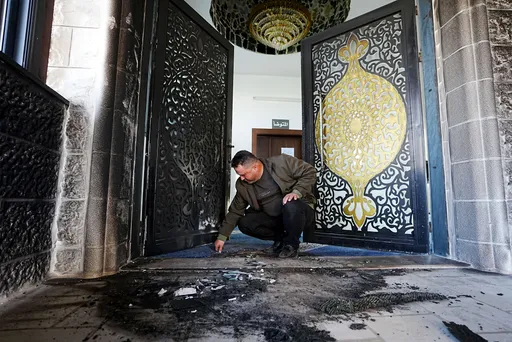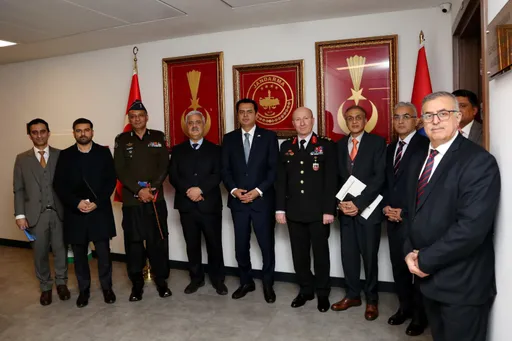Pakistan’s political class is largely dynastic, a closely packed circle of the who’s-who of society who are recognised by their surnames rather than achievements.
Thanks to its growing population, Pakistan adds tens of thousands of individuals above the age of 18 to the voter list every five years. While the demographics keep changing in light of younger voters queuing up at polling booths, the blue-eyed candidates with powerful surnames have largely remained the same for several decades, revealing a major fault line where there is a mismatch between people’s aspirations and those representing them in assemblies and the Parliament.
Analysts believe politics in Pakistan is family-centric, which leaves little space for aspiring politicians from middle-class and professional backgrounds in the top tiers of mainstream political parties.
“It’s extremely difficult for white-collar professionals from non-political backgrounds to make a mark in electoral politics. Mainstream parties usually award tickets to candidates who already enjoy a presence in their constituencies via either family connections or landholding,” says Umair Javed, assistant professor of sociology at the Lahore University of Management Sciences, while speaking to TRT World.
In the February 8 general election, about 127 million registered voters will elect provincial and national legislators for a five-year term.
The share of first-time candidates from each political party contesting the polls hardly ever goes beyond 10 percent, according to veteran journalist Zahid Gishkori. A full 33 percent of all 266 constituencies of the National Assembly in 2024 are likely to have elected representatives who were also candidates as far back as the 1990 election cycle, he tells TRT World.
“Even the handful of newcomers are mostly family members of the ones who’ve represented the same constituencies in the past,” he says.
A 2022 research paper in a publication of the Islamabad-based Pakistan Institute of Development Economics stated that dynastic legislators constituted at least 50 percent of the representatives elected in the 2002, 2008, and 2013 national polls.
The share of runner-up electoral candidates belonging to dynastic families remained 41 percent in the three election cycles. Its constituency-wise analysis showed areas with non-dynastic winners had better public services like water, sanitation, and road infrastructure.
As an example of influential families ensuring their survival amid changing political winds, Gishkori says 42 percent of lawmakers from the last legislature have switched their party affiliation for the 2024 election.
A majority of the recent turncoats belonged until recently to former premier Imran Khan’s Pakistan Tehreek-e-Insaf (PTI), which now exists as a shadow of its former self following a nationwide crackdown last year. Courts have convicted Khan, who remains behind bars, along with his associates in three cases of corruption and official misconduct.
The PTI isn’t contesting the general election as a party under a single electoral symbol for legal reasons. However, it’s officially backing “independent” candidates across the country and expects to ride a wave of renewed sympathy for Khan in the upcoming polls.
“More than 51 percent of PTI-backed candidates in 2024 are newcomers,” says Muzzammil Aslam, a spokesperson for the PTI, while talking to TRT World. He insists that the supposedly high share of newcomers in the PTI-backed contestants has little to do with the desertion of so-called “electables” – sure-shot candidates from traditional political families – after Khan’s removal from power in a parliamentary vote of no-confidence in April 2022.
“Khan announced on April 10, 2022, that he would bring completely new faces to politics. He awarded party tickets to newcomers in the subsequent by-elections even though many bigwigs wanted their names on the ballot paper,” Aslam says, insisting the party’s backing of newcomers is by choice rather than compulsion.
Speaking to TRT World, former two-time finance minister Miftah Ismail says most mainstream political parties “prefer” to have family members in top leadership roles. “There’s a glass ceiling, which you can also call a family ceiling, for outsiders. It gets difficult for an outsider to join the top ranks and stay there,” he says.
A PhD in economics from the Wharton School of the University of Pennsylvania, Ismail’s latest stint as finance minister came to an abrupt end in the coalition government that replaced Khan’s administration in April 2022. His party, the Pakistan Muslim League-Nawaz, replaced him with Ishaq Dar, a close relative of the party chief Nawaz Sharif, as finance minister just five months into the job.
“Nobody in the party batted an eye when Dar undermined me publicly. But when I started criticising his policies, especially on the issue of devaluation, the party made me persona non grata. They just stopped calling me to meetings,” he says, adding that non-family members in the top leadership are always looked at with suspicion.
Javed of LUMS believes that politics in Pakistan is personality-driven, which means closeness to the party’s supremo is crucial for rising through the ranks.
“A personalised structure of politics means no single, standard pathway exists for aspiring first-generation politicians to make it to the top,” he says.
Party dynamics are different in Western democracies because their mainstream political parties operate like “big bureaucracies” with grassroots structures that date back more than a century, he says.
However, Javed believes political parties are gradually accommodating technocrats, not to diversify their leadership roles but out of compulsion. These appointments, which are seen as outsiders by the traditional party rank-and-file, are needed to resolve day-to-day governance issues since they are skilled and equipped with modern-day knowledge.
“They’ve earned their place within their parties by working on social media or doing policy-related work. They don’t take part in politics in the traditional way, but their expertise in social development or the economy is useful for their parties,” he says.
“Parties know that they need such people once they’re in government.”























